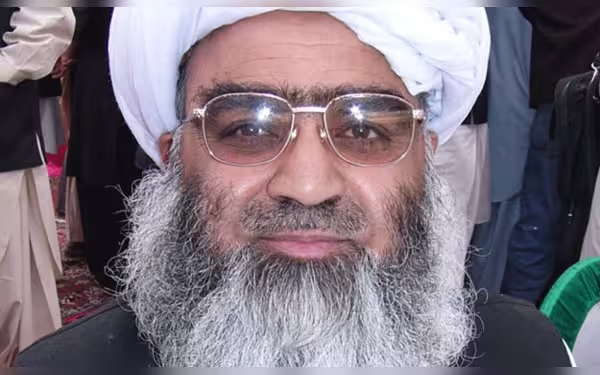Sunday, November 24, 2024 06:11 AM
JUI-F Opposes Military Operations in Balochistan
- JUI-F criticizes military operations in Balochistan.
- Senator Maulana Abdul Wasay calls for dialogue.
- Local leaders emphasize socio-economic development.
 Image Credits: tribune.com.pk
Image Credits: tribune.com.pkJUI-F opposes military operations in Balochistan, urging dialogue and development to address local issues.
The situation in Balochistan has been a topic of significant concern for many years, with various political and social issues affecting the region. Recently, the military's decision to conduct operations in Balochistan has sparked a heated debate among local leaders and communities. The Jamiat Ulema-e-Islam (F) or JUI-F, a prominent political party in Pakistan, has taken a strong stance against this military operation, raising questions about the implications for peace and stability in the area.
During a recent meeting of the Apex Committee, Senator Maulana Abdul Wasay, a leading figure in JUI-F Balochistan, voiced his opposition to the military's plans. He stated, "The approval of a military operation in Balochistan is not the solution to our problems. Instead, it will only exacerbate the already tense situation in the region." His remarks reflect a growing concern among many Balochistan residents who fear that military actions could lead to further violence and unrest.
Maulana Abdul Wasay highlighted the deteriorating conditions in Balochistan over the past three months, emphasizing that the local population has been suffering due to ongoing conflicts. He pointed out that the military's approach may not address the root causes of the issues faced by the people of Balochistan, such as poverty, lack of education, and limited access to basic services. Instead, he advocates for dialogue and peaceful negotiations as a means to resolve conflicts.
The JUI-F leader's comments resonate with many who believe that military operations often lead to more harm than good. The people of Balochistan have long been calling for a more comprehensive strategy that includes development initiatives and community engagement. They argue that addressing the socio-economic challenges in the region is crucial for achieving lasting peace.
As the debate continues, it is essential for all stakeholders to consider the potential consequences of military actions in Balochistan. The voices of local leaders like Maulana Abdul Wasay should not be overlooked, as they represent the concerns and aspirations of the people. Ultimately, finding a peaceful resolution that prioritizes the well-being of the Balochistan community is vital for fostering stability and harmony in the region.













